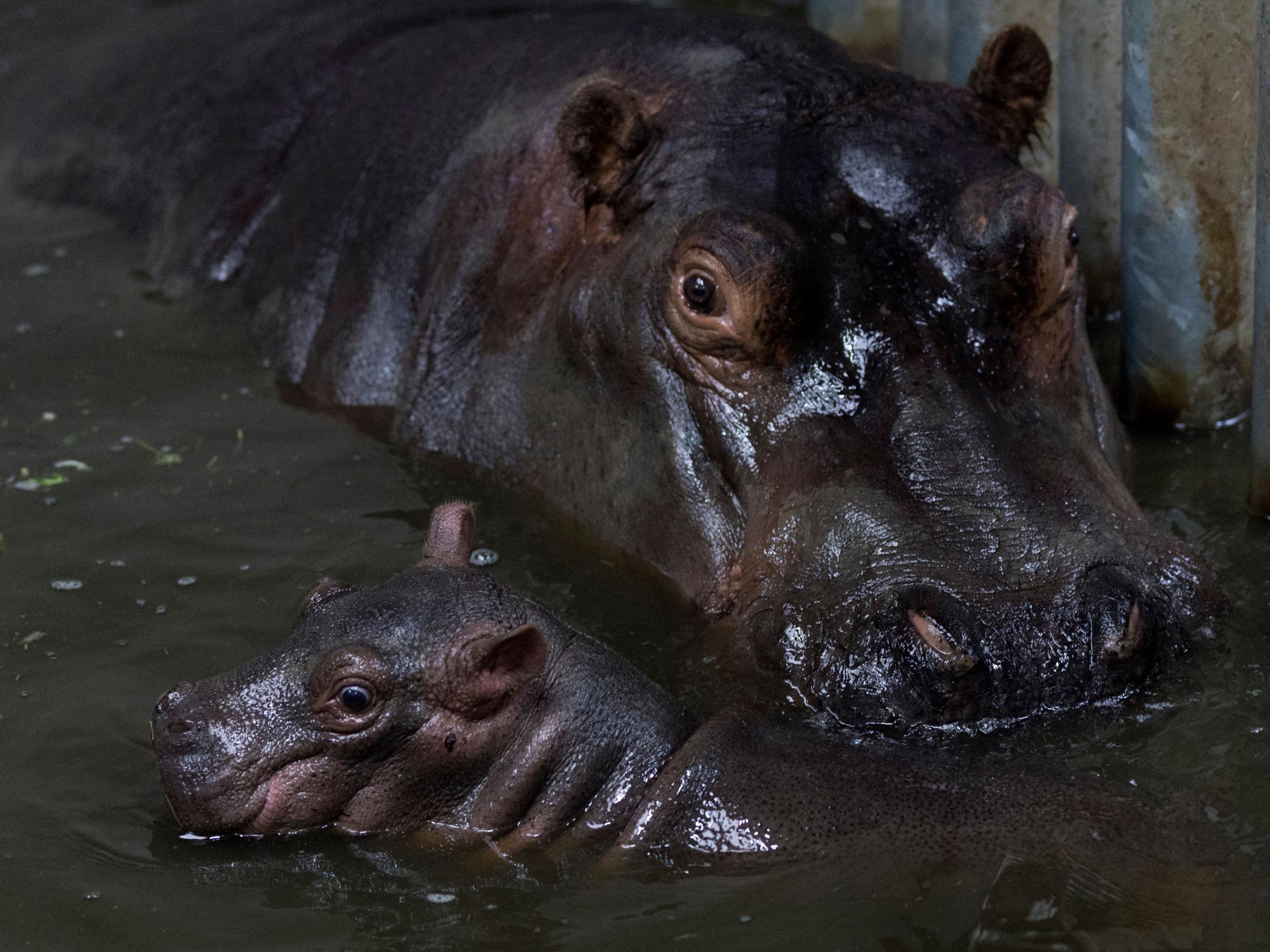Ivory ban could be extended to protect hippos, walruses and narwhals
Creatures listed as 'vulnerable' to extinction on International Union for Conservation of Nature Red List of Threatened Species

A proposed ivory ban could be extended to protect hippos, walruses and narwhals, the government has said.
Ministers have proposed strict legislation to ban the sale of ivory items of all ages, with a few exemptions, as part of efforts to protect elephants from poaching.
Around 20,000 elephants a year are slaughtered for their ivory, and wildlife campaigners argue the ban will slow the pace of the killing.
But concerns have been raised that the focus on elephants in the ban puts other ivory-bearing animals at increased risk of poaching for their ivory.
Both Labour and the Conservative former environment secretary Owen Paterson have called for the Ivory Bill currently going through Parliament to protect other ivory-bearing species, with hippos of particular concern.
The Government responded to the concerns by announcing a consultation on extending the scope of the legislation to protect hippos, walruses and narwhals.
Hippo teeth are durable, cheaper than elephant ivory and easier to carve into trinkets, meaning they are highly prized in Hong Kong.
Hippos are listed as “vulnerable” to extinction on the International Union for Conservation of Nature (IUCN) Red List of Threatened Species, with their population thought to have declined around 12 per cent in the last decade.
Narwhals are a species whale that grow a helical unicorn-like tusk that is actually a protruding canine tooth. They are considered a "near threatened" species, and there is a global trade in their tusks.
The Ivory Bill being considered by Parliament includes a power for ministers to extend the proposed ban on selling items made from elephant ivory to other ivory-bearing species covered by the Convention on International Trade in Endangered Species (Cites), including sperm whales and killer whales.

But now the Government has brought forward an amendment to the bill that could extend the bn to all ivory-bearing animals, not just those covered by Cites.
This would allow the ban to be extended to species such as warthogs and even the tusks of prehistoric mammoths, which some believe increases demand for elephant ivory, if a case for their inclusion was made during the consultation.
The consultation will begin as soon as posible after the bill becomes law, and will not delay the introduction of the ban on dealings in elephant ivory, ministers said.
Environment Secretary Michael Gove said: “Our ivory ban is one of the toughest in the world and will provide vital protection for the African and Asian elephant from the scourge of illegal poachin
“But there are many more precious species, like the hippo and walrus, which could fall victim to the callous trade in ivory
“The Government will therefore consult on extending the ivory ban to other ivory-bearing animals. We are determined to end this insidious trade and make sure ivory from any animal is never seen as a commodity for financial gain or a status symbol.”
Defra Minister David Rutley said: “We have today announced that we intend to consult on extending the ban to include other ivory species and will seek to start the consultation process and gather evidence as soon as practicable after Royal Assent.
“This process will ensure that if we do extend the scope of the ban, this will be robust, defensible, enforceable and compliant with the European Convention on Human Rights. Let me be clear, this will, however, not delay the introduction of the ban on dealings in elephant ivory.”
Proposed Labour changes to the bill, which sought to extend the scope of the ivory ban to other animals, were defeated in the Commons.
The bill went on to receive its third reading unopposed and has now been sent to the House of Lords for further scrutiny.
Shadow environment secretary Sue Hayman welcomed the passage of the bill, saying it was a “welcome step forward for the future of global elephant populations”.
She added: “I look forward to working with colleagues from right across the House to ensure we continue to do everything else we can in our power to stamp out the global ivory trade and preserve these iconic animal species for generations to come.”
Tory MP Sir David Amess, who has consistently campaigned against the ivory trade, also welcomed the move and said: “This is a day of celebration for all animals who have horns.”
Press Association contributed to this report
Join our commenting forum
Join thought-provoking conversations, follow other Independent readers and see their replies
Comments
Bookmark popover
Removed from bookmarks